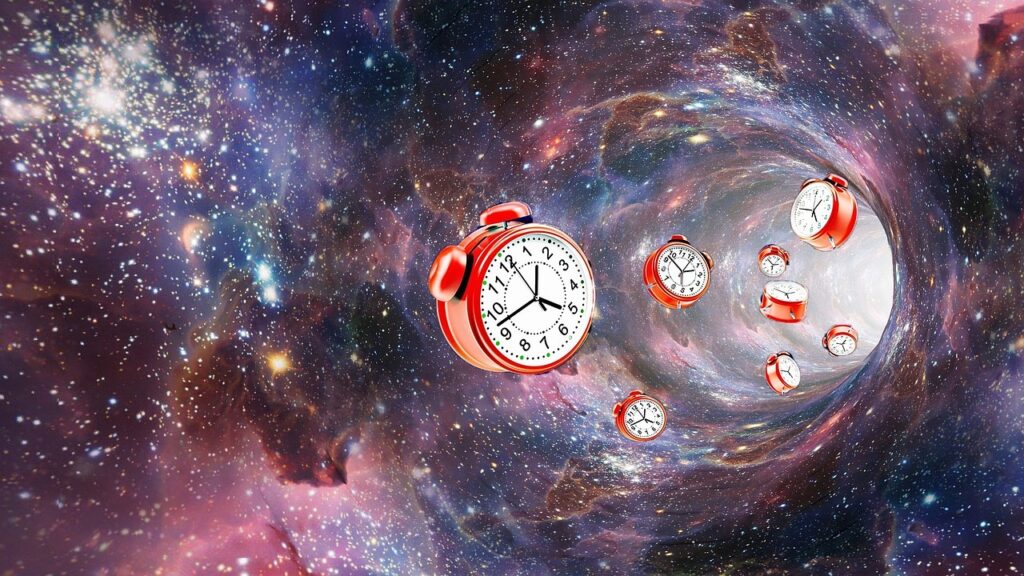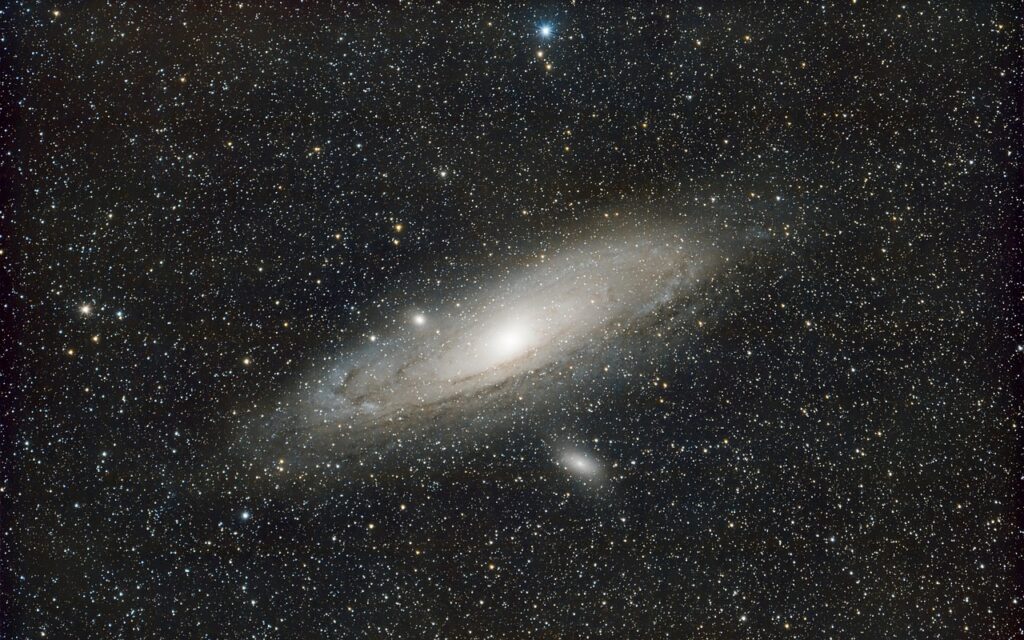
“Divine Laws and Relativity: Surah Al-Mu’minun 23:43’s Insight on the Fixed Nature of Time”
Surah Al-Mu’minun (23:43):
“No nation can advance its time (تَقَدَّمَأُمَّتُهَاأَجَلَهَا), nor can they delay it.”
From my perspective -(Time travel in the Quran), this ayah offers a profound insight into the concept of time and its fixed nature, which can be explored in light of modern scientific theories, such as Einstein’s special and general theories of relativity. Here’s how I interpret it:

Table of Contents
Einstein’s theories of relativity,
Investigate how the immutable wisdom of the Quran in Surah 23:43 is consistent with Einstein’s theories of relativity, thereby demonstrating the unchanging nature of time under divine control. This investigation endeavours to close the distance between faith and science.
From my perspective, this ayah offers a profound insight into the concept of time and its fixed nature, which can be explored in light of modern scientific theories, such as Einstein’s special and general theories of relativity. Here’s how I interpret it:
Time as a Fixed Entity in the Quran:
The ayah emphasises that no nation can alter its appointed time (ajal), which, to me, suggests that time is a fixed and unchangeable dimension under Allah’s (SWT) control. This aligns with the Quranic view that time is a creation of Allah and operates according to His divine laws. While humans may theorise about manipulating time, the Quran reminds us that time itself is beyond human control.

Einstein’s Special Theory of Relativity and Time Dilation:
According to Einstein’s special theory of relativity, time is not absolute; its flow depends on the speed at which an object is moving. The faster you travel, the slower time passes relative to a stationary observer (a phenomenon known as time dilation). While this theory suggests that time can appear to “slow down” or “speed up” depending on motion, it does not allow for actual time travel or the ability to alter the past or future. In my view, this aligns with the Quranic assertion that no nation can advance or delay its time. Even with time dilation, the fundamental flow of time remains governed by divine laws, and humans cannot truly manipulate it.
Einstein’s General Theory of Relativity and Gravity’s Effect on Time:
Einstein’s general theory of relativity further explains that gravity also affects the flow of time. Clocks run slower in stronger gravitational fields (a phenomenon known as gravitational time dilation). For example, time passes slightly slower on Earth’s surface compared to in space. However, this does not mean that time itself can be reversed or manipulated at will. Again, this scientific understanding resonates with the Quranic idea that time is fixed and cannot be altered by human or natural means.
A Deeper Reflection on Time Travel:
Both of Einstein’s theories suggest that time is relative and can be influenced by speed and gravity, but they do not support the idea of travelling backwards or forward in time. In my view, this aligns with the Quranic message in Surah 23:43, which implies that time is a creation of Allah (SWT) and operates under His divine will. The Quran’s assertion that no nation can advance or delay its time could be seen as a subtle indication that time travel, as humans imagine it, is not possible.

A Unique Insight Connecting Quran and Science:
While traditional interpretations of this ayah focus on the fixed nature of a nation’s lifespan or destiny, I see it as a potential reference to the concept of time and its unchangeable nature. This interpretation, in my opinion, highlights the Quran’s timeless relevance and its ability to address even modern scientific concepts like time dilation and relativity. The Quran does not contradict science; rather, it provides a framework for understanding the universe’s mysteries within the context of divine creation.
Remorseful people cannot go back
The Quran repeatedly states that it is impossible to change the past by going back in time. Remorseful people cannot go back in time to alter their deeds on the Day of Judgement, according to verses like Surah 32:12, which implies that the past is set in stone. Furthermore, Surah 31:34 asserts that no soul can predict the future, reaffirming that only Allah is aware of the invisible. This is sometimes interpreted as a prohibition against humans using time travel to access the future.
Conclusion
I believe Surah 23:43 can be interpreted as a subtle indication of the impossibility of altering time, which aligns with both the Quranic view and modern scientific theories like Einstein’s relativity. While science explores the relative nature of time, the Quran reminds us that time itself is a creation of Allah (SWT) and operates under His divine laws. This perspective demonstrates how the Quran inspires deep reflection on both spiritual and scientific matters, encouraging believers like me to seek knowledge and wisdom in its verses. May Allah (SWT) grant us all further insight into His divine words and reward us for our efforts in pondering His signs.
Frequently Asked Questions: Interpreting Einstein’s relativity with Quranic wisdom.
1.What is the main theme of Surah Al-Mu’minun 23:43?
The chapter argues that no country can change its divinely decreed duration (ajal). Underlining their permanent and unchanging character within their divine framework, it highlights Allah’s (swt) absolute control over time and destiny.
2. In what way is Einstein’s relativity related to the Quranic concept of time?
Einstein’s theories of special and general relativity argue that motion and gravity – for example, time dilation – make time relativistic. However, no theory allows people to essentially change or control the flow of time. This is in line with the Quranic case that divine guidelines beyond human control still direct time.
3. Describe time dilation and relate it to the point of view of the Quran.
Time slows down relative to a stationary observer when objects approach the speed of light in special relativity – time dilation.
Strong gravitational fields cause clocks to run slower in general relativity, sometimes known as gravitational time deceleration.
Although these events reflect the adaptability of time, they do not allow the reversal or acceleration of time outside its natural course, which is in line with the Qur’anic perspective that Allah (SWT) determines the ultimate flow of time.
4.Does the Qur’an condemn time travel as a concept?
The implication in the book is that time cannot be changed for creation, advanced or delayed. Modern physics believes that although relativity allows relative changes in the perception of time, it does not enable literal time travel – that is, the influence of the past or the future. Therefore, both the Quran and the scientific approach are contrary to the human transformation of the basic structure of time.
5. In what ways can time be “fixed” (Quran) and “relative” (Einstein)?
While the Qur’an emphasises its ontological stability under divine authority, Einstein’s relativity reflects the observable flexibility of time (e.g., different rates depending on speed/gravity) while the Qur’an emphasises why time works as a creation according to the laws of Allah, science explains how time works physically.
6.Is the Qur’an a scientific work?
The Quran is not a scientific book, it is a spiritual guidebook. Nevertheless, its lyrics often inspire contemplation of natural phenomena, which correspond to observable reality. The insight of Surah 23:43 on the unchanging character of time is in line with current science, hence proving the eternal relevance of the Quran.
7. Why is this agreement between faith and science generally more important?
It emphasises how the idea that scientific inquiry and divine revelation are not at odds with each other. While science provides the tools to examine how Allah’s creation works, the Qur’an invites believers to study creation so that they can value the knowledge of Allah.
8.Is this correct for other verses of the Qur’an?
Yes! Several passages discuss natural phenomena consistent with scientific ideas, including the water cycle and celestial orbits. Often, the Qur’an encourages Muslims to view creation as evidence of Allah’s perfection.
Final Thought
Einstein’s relativity and the way the Qur’an presents unchanging time suggest a fundamental truth: Time is created rather than invented by humans. Examining these similarities helps us to better respect Allah’s inventiveness and the unity of knowledge in faith and science.

ekra.ca@gmail.com, Jazakallahu Khayran for this explanation, which helps us understand better and is beneficial for us. May Allah increase our knowledge to understand our Lord and His creations-ameen